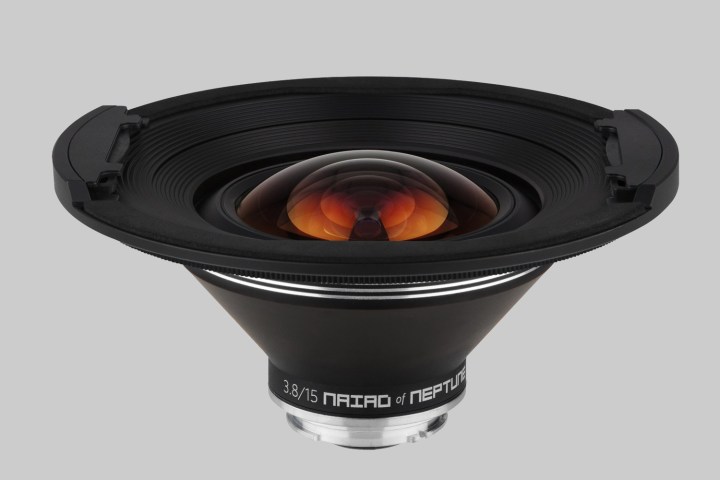
Lomography’s Neptunelens system just gained another focal length. On Thursday, April 5, Lomography launched the Naiad 15mm f/3.8, another piece to the modular lens system launched on Kickstarter in 2017.
Neptune is a convertible prime lens system with three main pieces — the mount attaching the lens to the camera, the aperture plate that creates the shape of the bokeh and the front lens, the glass that determines what focal length the lens is. The lens first launched with a 35mm f/3.5, a 50mm f/2.8, and an 80mm f/4 — but now photographers also have a 15mm to add into the mix.
The Naiad (each front lens piece is named after one of Neptune’s moons) is the widest lens to come to the system yet at 15 mm, with a 135 angle of view and an aperture between f/3.5 and f/22. The lens also has a short 1 cm-focusing distance. The Naiad is constructed from nine elements in seven groups and also uses multiple lens coatings. The company says the lens helps capture those punchy, saturated colors that are characteristic of Lomography.
If the Neptune’s modular design isn’t unique enough, the Naiad lens hood also pulls double duty by acting as a filter holder for 2mm rectilinear filters. Lomography offers compatible neutral density filters, graduated neutral density filters and temperature filters.
The idea behind the modular lens is to create multiple lenses in one, taking up less space in the camera bag. The swappable lens mounts also means photographers can mix different bodies with the same lenses, with Nikon F, Canon EF and Pentax K mounts available. Adapters are also available for Sony, Panasonic, and Olympus. That unusual modular design isn’t without downsides though — the lens system doesn’t have electronic contacts, which means no autofocusing and the camera body also won’t save details from the lens in the image’s metadata.
The entire Neptune convertible lens system now includes four different focal lengths — buying them all from the start will run $1,249, while the Naiad with a lens base retails for $699, or, for photographers that already have a Neptune base, $449. While the modular lens system initially launched on Kickstarter, the Naiad — and the rest of the Neptune system — is available now directly from Lomography.



